water distillation unit
Manufactured in the U.K., the QWS4 combines performance and reliability with exceptional value for money. This new water still incorporates a number of operational and safety features that make this still the ideal choice for your laboratory. • Output capacity 4Litres/Hour pyrogen free* single distilled water • Distillate quality complies with European Pharmacopoeia for Purified Water & A.S.T.M. Type 4. • Pyrex® glass boiler and condenser minimise potential contamination of distillate from the leaching effect of distilled water on metal components • Distillate pH5.0-6.5 • Distillate conductivity 3.0-5.0uS/cm • 3kW chromium plated heating element with 2 independent re-settable thermostats protect the still in the event of water supply failure • Easy to clean. No glassware dismantling is required • Available in 230V, 220V and 120V versions. Output capacity of 120V model is around 2.4Litres/Hour • Can wall or bench mounted • CE marked by independent testing agency • Supplied with an instruction/operating manual • All of the major components are available as spare parts *We recommend that the distillate is tested before use
Report Abuse
Shipping Details
Based on 0 reviews
Be the first to review “water distillation unit”
You must be logged in to post a review.
Vendor Information
- Store Name: ATLANTIC Scientific and Research Supply
- Vendor: ATLANTIC Scientific and Research Suply
- No ratings found yet!
-
Health & Medical
WBC-pipettes
Gentian violet slightly stains the nuclei of the leucocytes. The blood specimen is diluted 1:20 in a WBC pipette with the diluting fluid and the cells are counted under low power of the microscope by using a counting chamber. The number of cells in undiluted blood is reported per cumm (µl) of whole blood.
SKU: n/a -
Health & Medical
Microtome
The M-240 microtome from Myr uses state-of-the-art technology and embodies the company´s commitment to quality and excellence in microtomy. It provides the operational convenience and the stability required for outstanding sectioning in routine, research and industry applications
SKU: n/a -
Health & Medical
Haemometer set
Haemometers are used for the determination of blood’s content of haemoglobin. The Marienfeld Superior haemometer according to Sahli is supplied as complete set consisting of:
polystyrene support with 2 coloured rods and opal glass plate
comparator tube
haemoglobin pipette 20 μl acc. to Sahli
silicone tubing of approx. 16 cm length
white mouthpiece
dropping pipette with rubber teat
stirring rod
acid vial
cleaning brush
directions for use
without CE – mark, only for sale and application outside ECSKU: n/a -
Health & Medical
Transfection system
The Neon® Transfection System enables fast and efficient delivery of nucleic acids into all mammalian cell types, including primary, stem, and difficult-to-transfect cells. The flexible and open system allows the user to perform high-quality transfections using optimized or user-defined protocols in three simple steps with as few as 2 × 104 cells per reaction. A novel reaction chamber provides a dramatic increase in transfection efficiency and cell viability. The Neon® Transfection System is:
• Efficient—up to 90% in many cell types, including difficult-to-transfect cells, primary, and stem cells
• Flexible—easily transfect from 2 × 104 cells to 6 × 106 cells per reaction
• Simple—easy to use, with a single reagent kit for all cell types
• Versatile—open system allows electroporation parameters to be optimized freelySKU: n/a -
Health & Medical
Water bath
The waterbath with the most modern comfort and highest safety The
Memmert waterbath is available in six sizes and two performance classes. In addition to the Basic class for simple temperature control tasks, the Excellent version offers precise test procedures with maximum safety: electronic overtemperature protection and a multitude of visual and acoustic signals, e.g. when the filling level is too low, overtemperature, but also for input acknowledgement or at the end of the programme. In the largest water bath model, an optional circulation pump ensures even better thermal homogeneity of the water.Temperature range up to +95 °C (with cooling device CDP115 from +10 °C)
6 model sizes (7 to 45 litres interior volume)
various accessories: e.g. Peltier cooling device, flat and slanted lid, shaking device, floor grid, test tube rack
ultra-modern control technology
Water level maintenance optional
high-quality, rust-resistant and easy-to-clean stainless steel for interior and exterior housingSKU: n/a


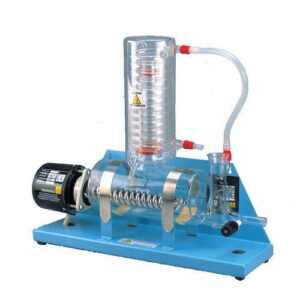
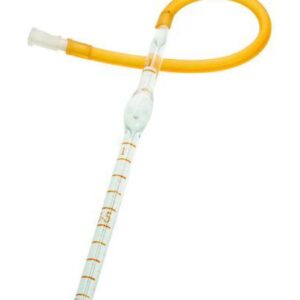
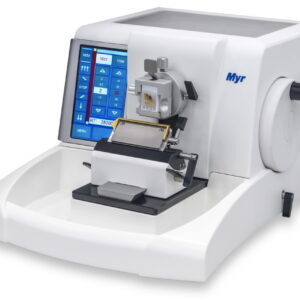
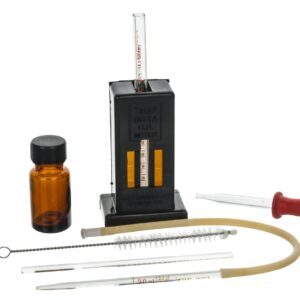
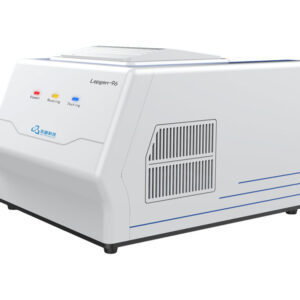
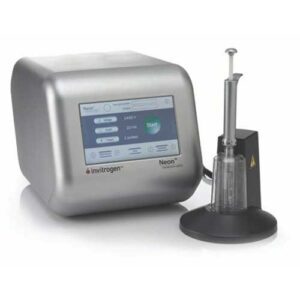
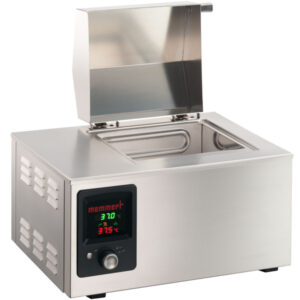
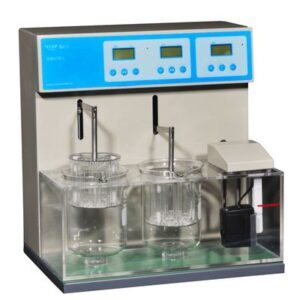
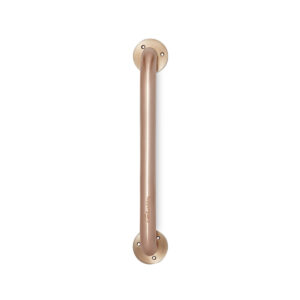
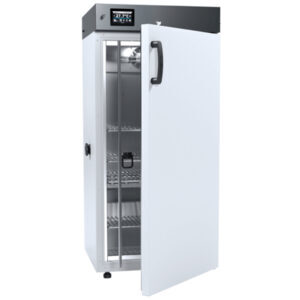
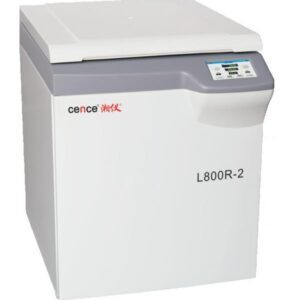
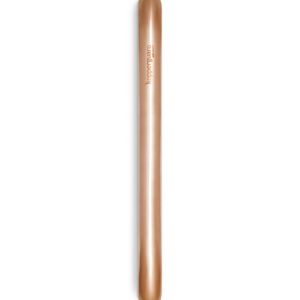
There are no reviews yet.